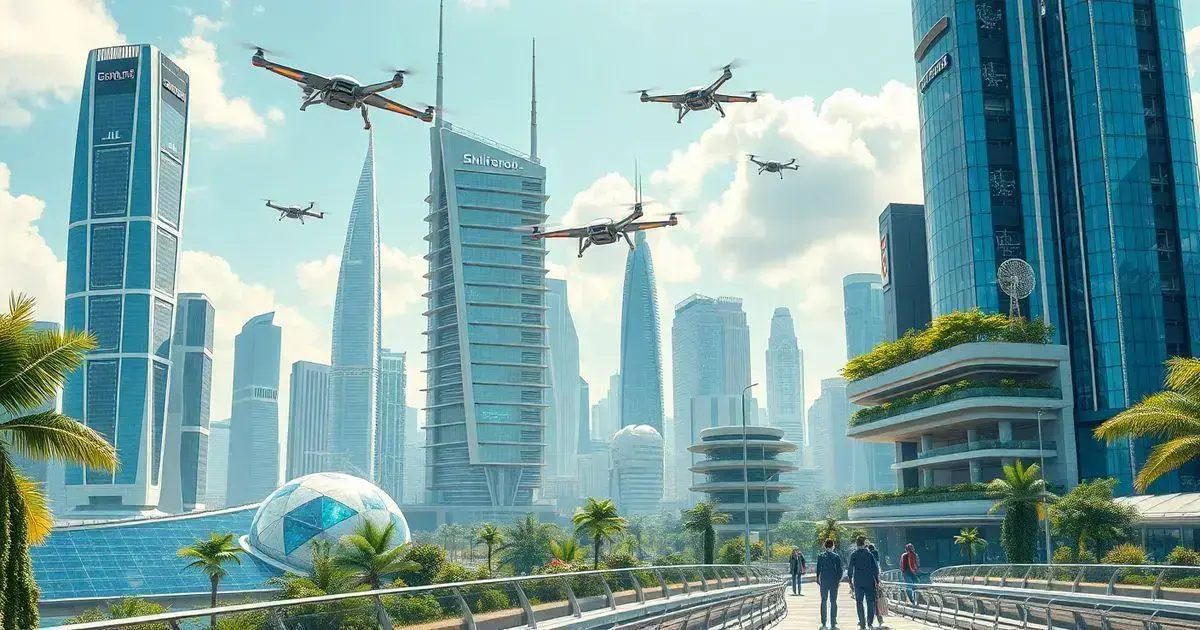Innovation in technology is at the forefront of shaping our future. It drives progress, transforming how we live, work, and connect with the world around us.
As we advance through the digital age, exploring groundbreaking technologies becomes essential. These innovations influence industries, economies, and even our daily routines in ways we might not yet fully realize.
Want to discover how these technological advancements are impacting our lives? Keep reading to uncover the key trends and innovations that are redefining the future.
The Evolution of Technology
The evolution of technology spans centuries, marked by groundbreaking milestones that have transformed human life. From the invention of the wheel to the rise of the internet, each innovation has laid the foundation for the next. Innovation in Technology has been the driving force behind these changes, pushing boundaries and creating new opportunities.
The 18th-century Industrial Revolution introduced machinery that boosted productivity, spurred urbanization, and reshaped economic structures. In the 20th century, the emergence of computers revolutionized data processing and communication, paving the way for the digital age. Innovation in Technology continued to accelerate, leading to breakthroughs that transformed how people live and work.
Today, rapid advancements in fields like artificial intelligence and robotics are not only enhancing efficiency but also unlocking new possibilities across industries. This ongoing Innovation in Technology is reshaping the future, opening doors to developments we once thought impossible.
As technology continues to evolve, understanding its history helps us appreciate its profound impact on society and how Innovation in Technology shapes our daily lives, influencing everything from communication to global economies.
Key Innovations That Changed Our Lives
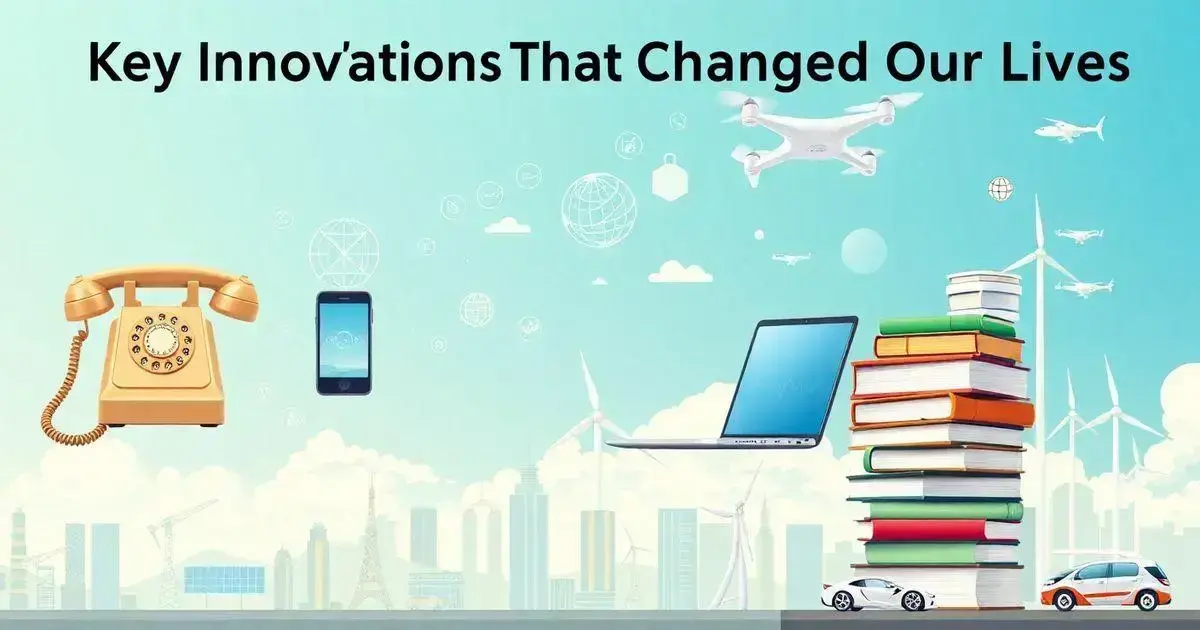
Key innovations have profoundly shaped our lives, making everyday tasks easier and more efficient.
The phone, for example, has transformed communication, connecting people across vast distances instantly.
The internet has revolutionised access to information, changing how we work, learn, and connect with others.
Moreover, advancements in healthcare technology have improved patient outcomes, enabling precise diagnoses and innovative treatments.
Renewable energy technology has begun to address environmental concerns, promoting sustainability.
By understanding these key innovations, we can appreciate how they enhance our quality of life and drive progress.
The Impact of Technology on Society
The impact of technology on society is vast and profound. It has changed how we communicate, work, and even think.
Social media allows us to connect with friends across the globe, sharing moments in real-time.
Moreover, technology has revolutionised education; online learning platforms provide access to knowledge for anyone, anywhere.
In the workplace, automation and digital tools increase productivity, enabling employees to focus on critical thinking rather than mundane tasks.
However, while these changes offer many benefits, they also present challenges, such as cybersecurity threats and reduced face-to-face interactions.
Understanding the dual nature of technological impact is essential for adapting to a constantly evolving society.
Emerging Trends in Technology
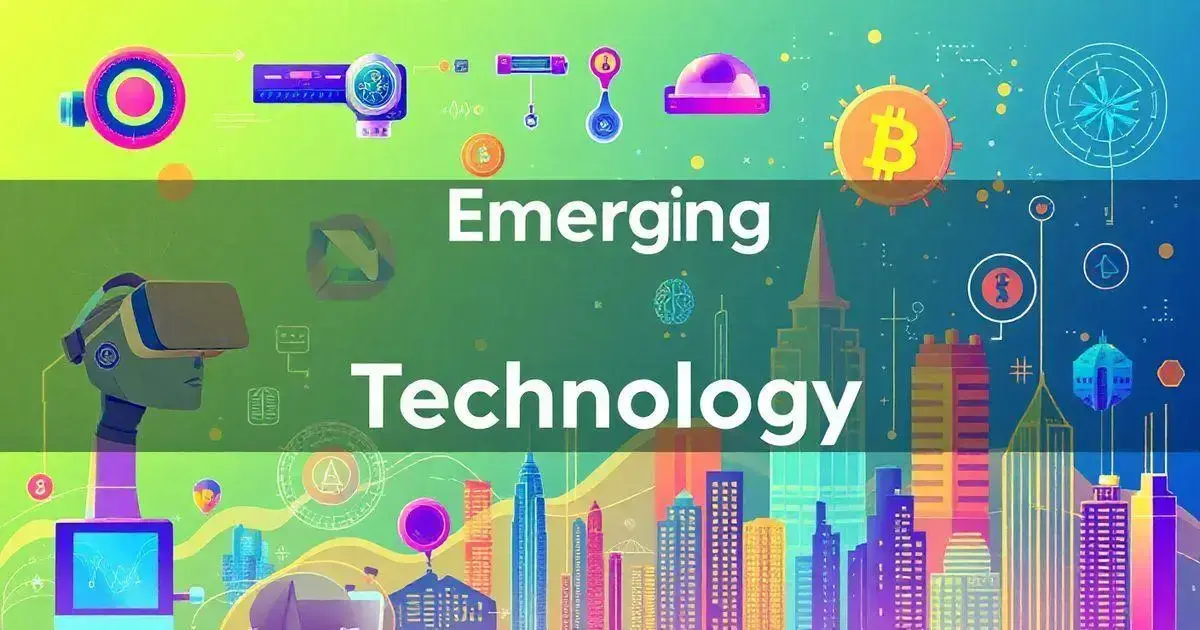
Emerging trends in technology are shaping our future and influencing many industries. One key trend is the rise of artificial intelligence (AI), which enables machines to learn from data and make decisions. This advancement can be seen in various sectors such as healthcare, where AI aids in diagnosis and treatment planning.
Another significant trend is blockchain technology, which enhances security and transparency in transactions. Furthermore, Internet of Things (IoT) devices are becoming common in our daily lives, connecting everything from home appliances to transportation systems.
Additionally, 5G technology promises faster internet speeds and improved connectivity, paving the way for new applications in entertainment, telecommuting, and smart cities.
As these trends evolve, they offer both exciting opportunities and challenges for businesses and consumers alike.
How Innovation Drives Economic Growth
Innovation drives economic growth by fostering new ideas and technologies that create jobs and improve productivity.
Investments in research and development play a vital role in this process, allowing businesses to innovate and stay competitive.
For example, when companies adopt cutting-edge technology, they can streamline operations and reduce costs, which boosts overall efficiency.
Furthermore, startups often emerge from innovative ideas, contributing to market dynamism and job creation.
Successful innovations can lead to the development of entire industries, offering opportunities for entrepreneurship.
Overall, supporting innovation is crucial for sustainable economic growth and resilience in an ever-changing market.
Challenges Facing Technological Innovation
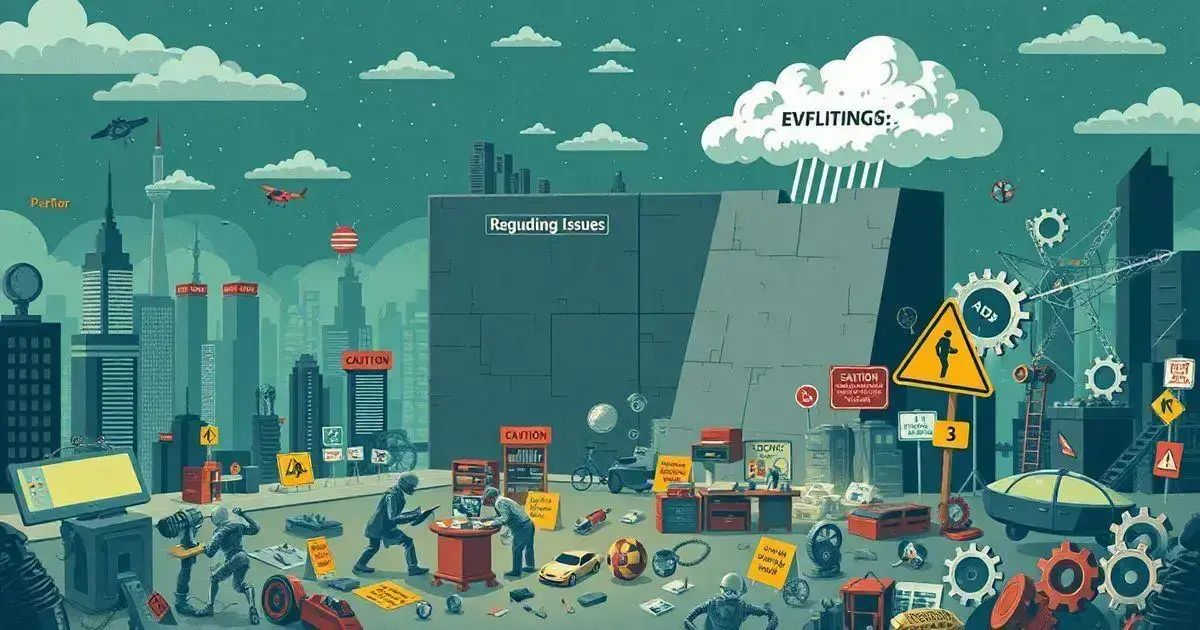
Technological innovation faces several challenges, including high costs and rapid advancements. Adopting new systems often requires significant financial investment, which can be a barrier for small businesses. Additionally, the fast pace of technological change can be overwhelming, creating concerns about obsolescence.
Workforce training is another critical challenge, as employees need to develop new skills to use emerging technologies effectively. Without proper training, businesses may struggle to maximize the potential of innovative tools. Furthermore, regulatory barriers can restrict innovation by imposing strict guidelines, limiting the ability of companies to respond quickly to market changes.
Addressing these challenges is essential for creating an environment where innovation can thrive. By investing in training, adapting to regulatory changes, and finding cost-effective solutions, businesses can better embrace technological advancements and remain competitive.
The Role of Artificial Intelligence
The role of artificial intelligence (AI) in today’s world is becoming increasingly significant. From automating routine tasks to analyzing vast amounts of data, AI has the potential to transform how businesses operate and make decisions.
For example, customer service chatbots enable companies to respond to inquiries quickly, enhancing customer satisfaction and streamlining support processes. Additionally, AI helps businesses make data-driven decisions, providing valuable insights into market trends and consumer behavior.
In the healthcare sector, AI assists in early disease diagnosis by analyzing patient data and recommending treatment plans. Embracing AI not only boosts efficiency but also fosters innovation across various industries, opening new possibilities for growth and development.
Innovating for Sustainability
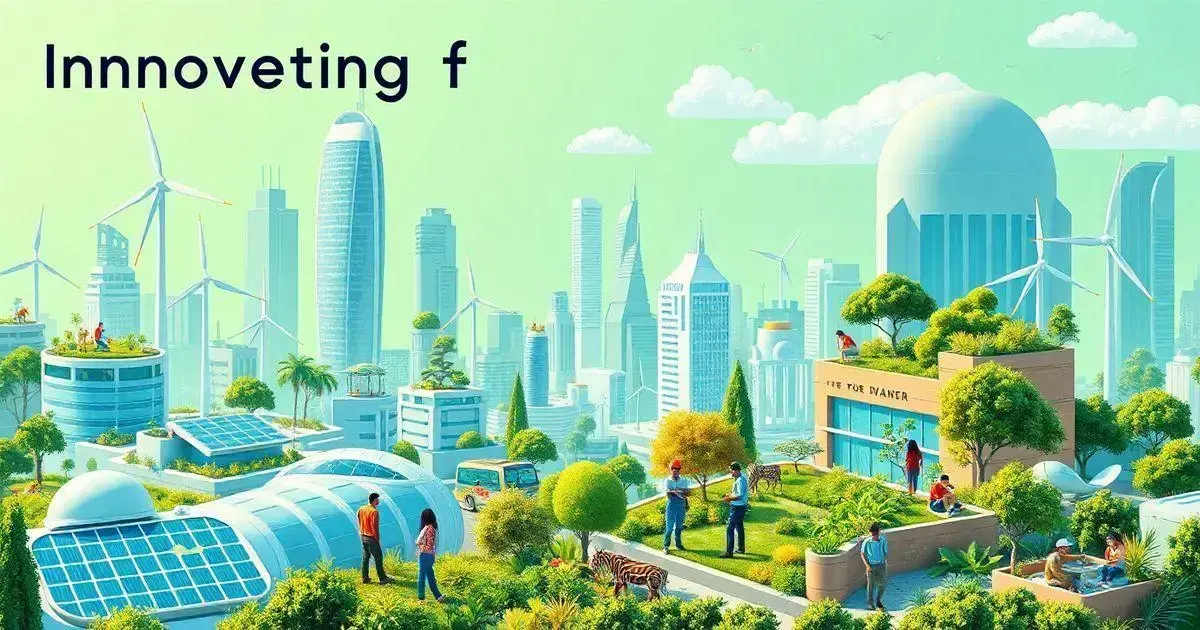
Innovating for sustainability is crucial in today’s world. Companies are increasingly adopting green technologies to reduce their carbon footprint.
For instance, many businesses are switching to renewable energy sources like solar and wind power, which help decrease reliance on fossil fuels.
Additionally, sustainable practices in manufacturing can lead to less waste and better resource management.
Innovations such as biodegradable materials are making it easier for companies to create products that are less harmful to the environment.
By focusing on sustainability, businesses not only help the planet but also attract customers who value eco-friendly practices.
Future Predictions for Technology Innovation
Future predictions for Innovation in Technology suggest an increasingly interconnected world. As artificial intelligence (AI) continues to advance, it will become a key driver of smart automation across various sectors, from agriculture to healthcare. This evolution highlights how Innovation in Technology is transforming industries and enhancing efficiency on a global scale.
Quantum computing is also on the horizon, promising to solve complex problems beyond the capabilities of traditional computers. Meanwhile, the expansion of 5G networks will enhance connectivity, allowing the Internet of Things (IoT) to thrive, leading to smarter homes and cities where devices communicate seamlessly. These developments are a testament to the power of Innovation in Technology to reshape how we live and interact.
Additionally, advancements in sustainable technologies will reshape industries, driving a shift towards greener practices. As we look to the future, embracing Innovation in Technology will be essential for fostering growth and sustainability, ensuring that progress benefits both society and the environment.
FAQ – Frequently Asked Questions About Innovation in Technology
How can technology innovation benefit my business?
Technology innovation can enhance productivity, streamline operations, and improve customer service, leading to greater competitiveness and growth opportunities.
What are some examples of emerging technologies?
Examples include artificial intelligence (AI), blockchain, the Internet of Things (IoT), quantum computing, and renewable energy technologies.
How does artificial intelligence impact customer experience?
AI provides personalized recommendations, automates customer support responses, and analyzes data to deliver more efficient and tailored services.
Why is sustainability important in technology?
Sustainable technology practices help reduce environmental impact, ensuring that innovation supports a healthier planet for future generations.
What challenges exist when implementing new technologies?
Common challenges include high implementation costs, a shortage of skilled professionals, and regulatory hurdles that can slow down adoption.
How can I keep up with technology trends?
Stay informed by reading industry news, attending tech conferences or workshops, subscribing to relevant publications, and following technology thought leaders on social media.
Check out our article on Business Innovation to explore strategies for driving growth and staying competitive in today’s fast-paced market.
